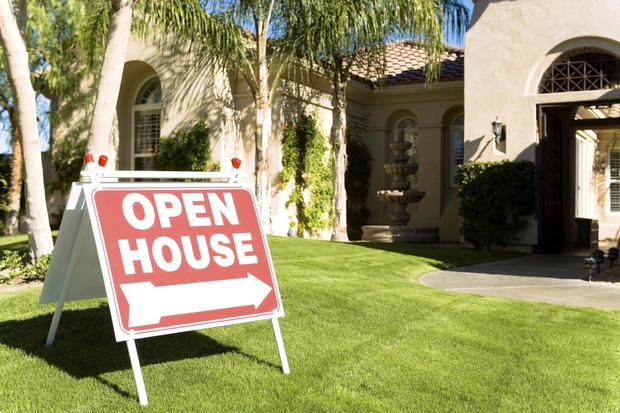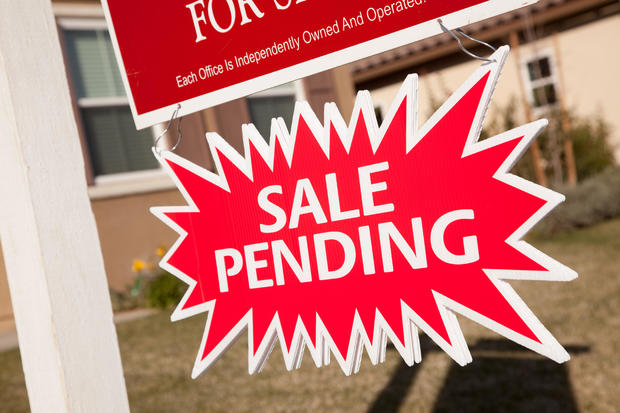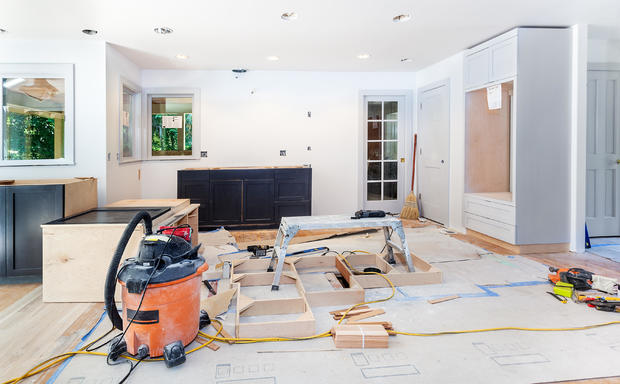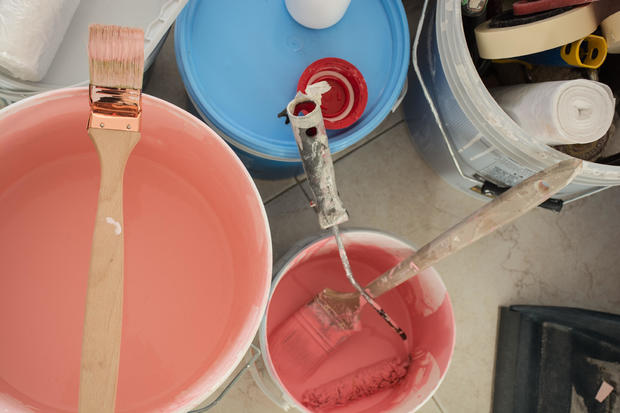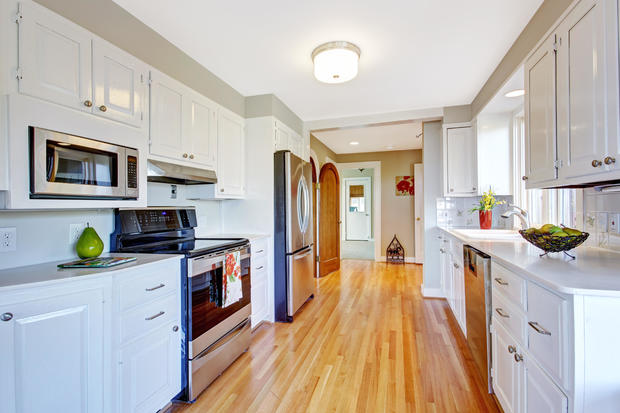9 things to know about selling a home in spring 2017
Planning on selling a home this spring? It's time to get ready.
While mortgage rates have risen in the last year, experts say 2017 will still see strong home sales as job growth continues and people who'd been waiting to enter the market take the plunge into homeownership.
To attract buyers in any season -- and sell for a good price -- sellers need to show their homes in the best possible light. That means cleaning up the interior and exterior, removing personal items that could distract potential buyers, adding a fresh coat of paint, and deciding which upgrades and repairs will deliver the best return on investment.
But for those hoping to close in the next few months, there are some more specific things experts say sellers need to know: Low housing inventory is driving demand, but buyers are still being more selective than sellers might expect. Millennials are finally buying their first homes, and that means starter properties are selling faster than in recent years.
Of course, real estate is a hyper-local industry, so national trends may not hold true in all markets. A real estate agent can help you understand what buyers in your area are looking for and how to appeal to them.
Click ahead to learn about nine things you need to know if you plan to sell your home this spring.
It’s a seller’s market
This season is expected to be an extremely good time to be a seller, said Lawrence Yun, chief economist and senior vice president of research for the National Association of Realtors.
"This year in the spring buying season, things have intensified with more buyers and fewer sellers than last year," he said.
This high-demand, low-supply environment means sellers will see a lot of foot traffic from eager buyers and, if the home is priced correctly for the local market, they could get multiple offers.
This trend looks like it will continue despite rising mortgage rates, Yun said, as job growth and the U.S. economy as a whole remain strong.
Starter homes in demand
One reason for the increased housing demand this year is that millennials -- many of whom have been reluctant to dip their toes in the real estate water due to fears about their job security, high levels of debt and other factors -- are now ready to become homeowners, said Svenja Gudell, chief economist for Zillow.
"We're seeing a lot of demand for entry-level homes and things that are a little less expensive, as many millennials and first-time buyers are very active," Gudell said.
While starter homes are in high demand and will likely sell more quickly, Yun said pricier homes are selling more slowly.
"Inventory on the upper price ranges -- $500,000 and over -- these are staying on the market longer than other price categories," he said.
Pick your listing time strategically
When you decide to list your home this spring can impact how quickly it will sell. Zillow conducted a study of listings in markets across the country and found that, nationwide, homes listed between May 1 and May 15 sold an average of nine days faster and for an average of 0.8 percent more than homes listed at other times. In most markets, listings posted on a Friday or Saturday performed best.
"These times differ from one market to the next," Gudell said. "It's spread over March, April and May, and warmer markets will start earlier. Markets with deep, snowy winters tend to start a bit later."
The coasts are cooling
Skyrocketing home prices in coastal metro areas like New York, San Francisco and Los Angeles, combined with rising mortgage interest rates, are making those areas less appealing to homebuyers, Gudell said.
"It used to be in San Francisco that something came on the market and buyers would just throw money at it, but that's not happening anymore," she said. These buyers are now turning to areas Gudell referred to as "secondary markets:" smaller cities such as Nashville, Tennessee, Tampa, Florida, and Milwaukee, Wisconsin, where lower starting prices mean homebuyers can afford to pay higher mortgage interest rates.
Buyers aren’t willing to settle
Just because buyers are ready to snap up low-priced starter homes doesn't mean they're willing to settle, said Realtor Mary Dykstra, owner/partner at MKB Realtors in Roanoke, Virginia.
"They're unwilling to buy anything that needs too much work, so you have to put out a good product" when marketing your house, Dykstra said. This means making small improvements to help your house stand out to potential buyers.
Skip the big renovation
Homeowners, especially those with more dated decor, often feel that they'll need to do a big renovation before they put their homes on the market, but these projects may not generate enough of a return to be worthwhile.
"You can do a lot through smaller projects," Dykstra said. "You don't always have to do something big like redoing your bathroom."
According to a recent National Association of Realtors report, sellers only recoup about 58 percent of their investment on a bathroom renovation. However, those who put a new roof on their homes recouped 105 percent of their investment.
Dykstra said that new windows and other smaller, energy-efficient upgrades also make great selling points.
Paint can boost your sale price
A fresh coat of paint can be a quick, easy and inexpensive way to update your home and push up the sale price, Gudell said.
Zillow found last year that certain paint colors can have a big impact on how much you get for your home. For example, the study found that homes with yellow kitchens sold for about $1,400 more than homes with white kitchens. While a mauve, eggplant or lavender dining room raised sale prices by $1,122 on average, a dark gray dining room lowered it by $1,112.
Smart-home tech may not be a good investment (yet)
While smart-home tech is trendy, it may not be worth the investment, Dykstra said.
"It hasn't caught on yet in a way where we can quantify its value to the home with a dollar amount," she said. "It's still in the gadget stage where people go, 'Oh, that's nice,' but not everyone is ready to have internet-connected everything."
Save the smart-home upgrade for your new home, where you'll be able to appreciate your own investment.
Keep it clean
Dykstra stressed that the most important thing for sellers to do in any season is to present a clean, tidy home where buyers can really envision themselves living.
"Younger buyers are more zen-like in what they're attracted to," she said. "They want something out of Pottery Barn or other modern catalogs, so give them a clean palate by putting your personal things away."
Dykstra recommends removing personal trinkets -- which can make a room look cluttered -- and tidying up your exterior too.
"Spring shows properties at their best when trees and flowers are blooming, so make sure your lawn is tidy and you don't have any fall leaves blown up against your door," she said.
